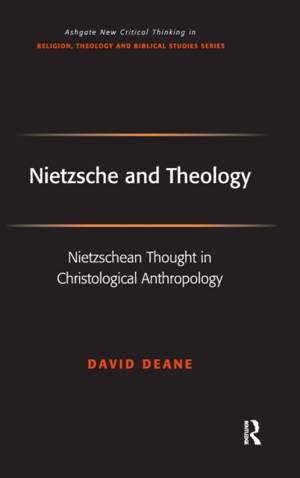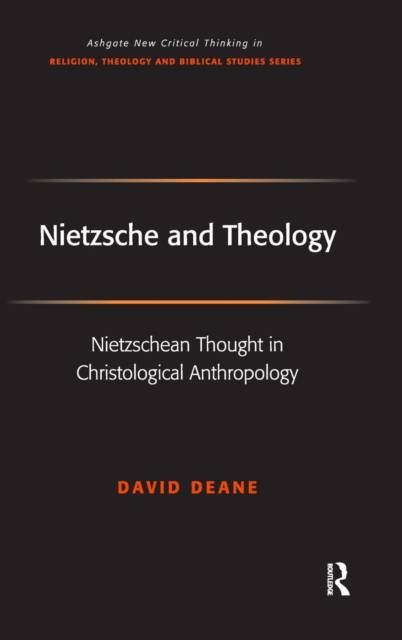
Bedankt voor het vertrouwen het afgelopen jaar! Om jou te bedanken bieden we GRATIS verzending (in België) aan op alles gedurende de hele maand januari.
- Afhalen na 1 uur in een winkel met voorraad
- In januari gratis thuislevering in België
- Ruim aanbod met 7 miljoen producten
Bedankt voor het vertrouwen het afgelopen jaar! Om jou te bedanken bieden we GRATIS verzending (in België) aan op alles gedurende de hele maand januari.
- Afhalen na 1 uur in een winkel met voorraad
- In januari gratis thuislevering in België
- Ruim aanbod met 7 miljoen producten
Zoeken
€ 305,45
+ 610 punten
Uitvoering
Omschrijving
Theology has always viewed Nietzschean thought with a sideways glance, never quite sure what to make of it. Where serious engagement has occurred it has tended to either reject such thought outright or to accept it to such an extent that it loses its identity as Christian theology. This book outlines a model for incorporating Nietzschean thought within the structures of a wholly traditional Christological anthropology. What is perhaps even more significant is what shows up in Christological anthropology under this Nietzschean light. Using Nietzschean concepts a whole new lexicon is opened up for understanding and articulating traditional accounts of sin and fallenness, accounts which modern theology has often lacked the categories to articulate. The book culminates in a doctrine of reconciliation which is given urgency and coherence precisely through such reinvigoration of traditional accounts using Nietzschean thought.
Specificaties
Betrokkenen
- Auteur(s):
- Uitgeverij:
Inhoud
- Aantal bladzijden:
- 206
- Taal:
- Engels
- Reeks:
Eigenschappen
- Productcode (EAN):
- 9780754657675
- Verschijningsdatum:
- 16/10/2006
- Uitvoering:
- Hardcover
- Formaat:
- Genaaid
- Afmetingen:
- 156 mm x 234 mm
- Gewicht:
- 467 g

Alleen bij Standaard Boekhandel
+ 610 punten op je klantenkaart van Standaard Boekhandel
Beoordelingen
We publiceren alleen reviews die voldoen aan de voorwaarden voor reviews. Bekijk onze voorwaarden voor reviews.









